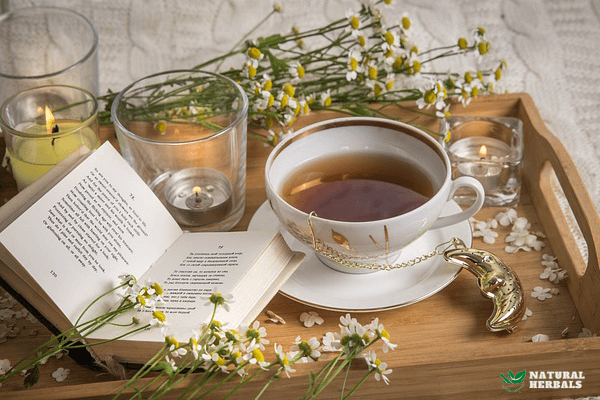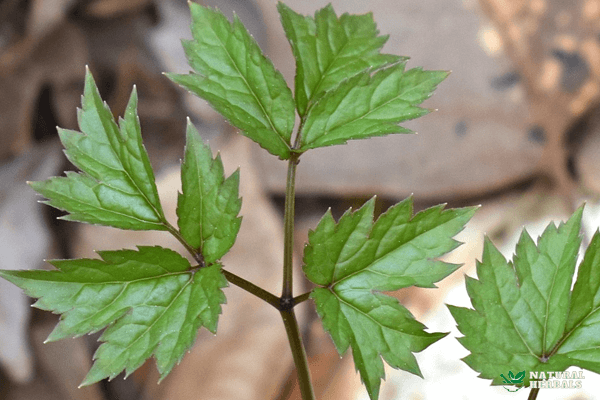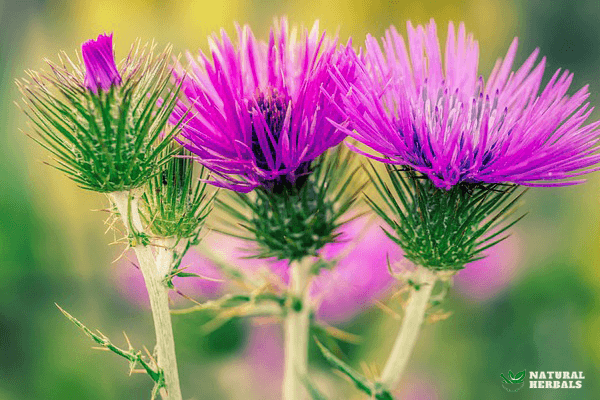
Chamomile is very often used as a medicinal plant. Its properties alleviate abdominal pain and aid digestion, among other things. It also has anti-inflammatory and antibacterial effects, e.g. on inflammation of the lower urinary tract. It is also used in cosmetics.
Properties of Chamomile
The properties of common chamomile are among the better documented in the world of herbal medicine and cosmetics. This flower is unique in that it contains substances that are not characteristic of the plant world.
Chamomile Properties – What Makes This Herb So Versatile?
Chamomile (matricaria recutita) is one of the most popular medicinal plants. It contains a large (up to 1.5%) amount of essential oils. It contains a number of compounds, almost all of which show properties useful in medicine and cosmetics:
- Chamazulene with anti-allergic properties
- Choline, which is an essential substance in cell construction
- Alpha-bisabolol and its oxides with anti-inflammatory and antibacterial effects
- Flavonoids, Phenolacids
- Cholesterol-lowering phytosterols
- Polyacetylenes with analgesic, antibacterial and central nervous system stimulating effects
- Catechin tannins with anti-inflammatory, antibacterial and astringent effects
- Bitters that stimulate the digestive system
- Coumarin and mucilaginous compounds with diastolic and anticoagulant effects
As you can see, the list of benefits contained in chamomile oils is quite long, hence the use of dried flower heads (chamomile is an annual plant) collected preferably at the beginning of April, on a dry and sunny afternoon. This is the time when the plant has the most valuable substances in it. After drying, the flower heads are used in medicinal or herbal preparations.
Chamomile for Ulcers
At the end of the 20th century, a study was conducted in which rats with peptic ulcer disease were treated with a chamomile extract. After administration of this extract, it was noticed that ulcer development was inhibited. Moreover, the ulcers healed faster.
Chamomile for Babies – Does it Help?
If there is an infant in the house, it is worth checking whether the medicine cabinet contains chamomile. An infusion of the flower can be used when the child's eyes are festering, and the flavonoids it contains have a diastolic effect and help relieve infantile colic.
An infusion of chamomile flowers also calms the baby and helps it fall asleep. A cotton swab soaked in chamomile essence or oil can be used to wash irritated infant gums when teething.
A small amount of oil can also be mixed with bath water, especially if your child is irritated or prone to skin irritation. On the other hand, if your child has a runny nose or a cold, its antibacterial properties are used – put a hot infusion of chamomile by the crib and let the baby inhale. This will help clear the baby's airways.
Chamomile has potential anticancer effects
Due to its high content of antioxidant substances, chamomile extract prevents cancer and has the ability to regulate tumor angiogenesis. Effect of extract was investigated against HepG2 cells. A dose-dependent reduction in cell viability was recorded in cells treated with the extract.
Chamomile for Treating Conjunctivitis (Pink Eye)
Chamomile infusion or preparations containing its oil are recommended for conjunctivitis or other eye irritation conditions, e.g. allergies. Its components have astringent (reducing swelling), antiseptic and anti-inflammatory properties. In case of irritated eyes, compresses work best.
Chamomile for Hair as a Conditioning Agent
The properties of chamomile have long been appreciated in cosmetics, especially in hair care. Preparations containing its oils are often dedicated to blonde hair because of its brightening effects. The mineral compounds contained in chamomile strengthen hair roots and make the hair more flexible (they do not break) and shiny (chamomile restores the hair's naturally bright color). Chamomile extracts are an ingredient in preparations for oily and dandruff-prone scalps.
Chamomile For The Face – Soothing Properties Against Inflammation
The antibacterial and anti-inflammatory properties of chamomile make the infusions suitable for use in therapeutic baths or compresses, e.g. for acne-prone skin, irritated skin, inflammatory conditions and fungal infections. For the same reason, chamomile flower extract is a desirable ingredient in cosmetics, e.g. in creams, masks and bathing liquids, especially for skin prone to irritation.
Drinking Chamomile Tea
An infusion of chamomile has a primarily relaxing effect and makes it easier to fall asleep. It is helpful in stressful situations. Due to its antibacterial, anti-inflammatory and antispasmodic properties, it helps with digestive problems.
An infusion or chamomile in the form of a tea facilitates digestion after heavy meals, but also has an anti-inflammatory effect on the mucous membranes of the stomach, bile flow, gastrointestinal tract and liver. it is indicated for stomach pains, colic or flatulence, as well as kidney and bladder problems. It is also used for throat and mouth infections – gingivitis, fungal lesions, infections, etc.
Side Effects of Chamomile
Keep in mind that chamomile is an herb that can cause allergies in some people, especially when used as a compress or skin cleanser. If consumed in excess, it may weaken the effect of some medications or interact with them. Moreover, the use of herbs can never replace a treatment prescribed by a doctor.
In addition, some studies have shown that it erodes tooth enamel more than black tea or water. The erosive effect of herbal tea was five times stronger than traditional black tea. So regular consumption of herbal teas can have a negative effect on teeth – adds dietician Katarzyna Blazejewska-Stuhr
Chamomile Preparations
Anyone can benefit from the positive effects of chamomile, preparing a chamomile infusion at home or a relaxing bath.
Chamomile Infusion For Gastrointestinal Disorders
Two tablespoons of chamomile inflorescences pour 2 cups of boiling water and leave, covered, for 15 minutes, then strain. We can drink the infusion prepared in this way 3 times a day, half a glass between meals in the case of gastrointestinal disorders (flatulence or colic). In addition, this infusion can be used for rinsing in inflammations of the mouth and as compresses for ulcers, burns, wounds and conjunctivitis.
Chamomile Bath
Pour 100g of chamomile baskets with 3l of water, bring to a boil and cook,
covered, for 15 minutes. Strain the prepared decoction and pour it into a bathtub with warm water. The 20-minute bath has a calming effect, soothes skin irritations and disinfects the entire body.

I am an official member of International Association of Therapists and research natural healing methods and herbs. The posts are my findings.







